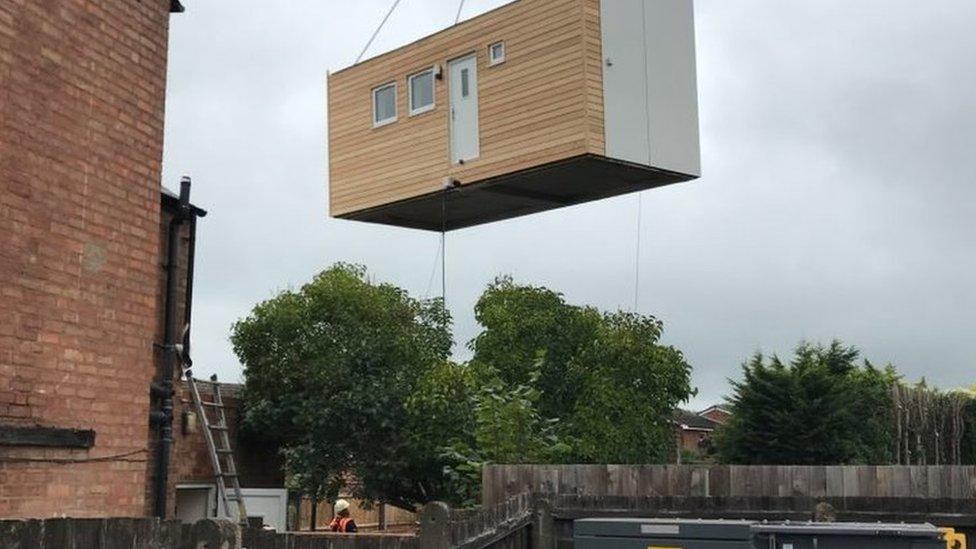'LGBT shelter means I can be myself'
- Published
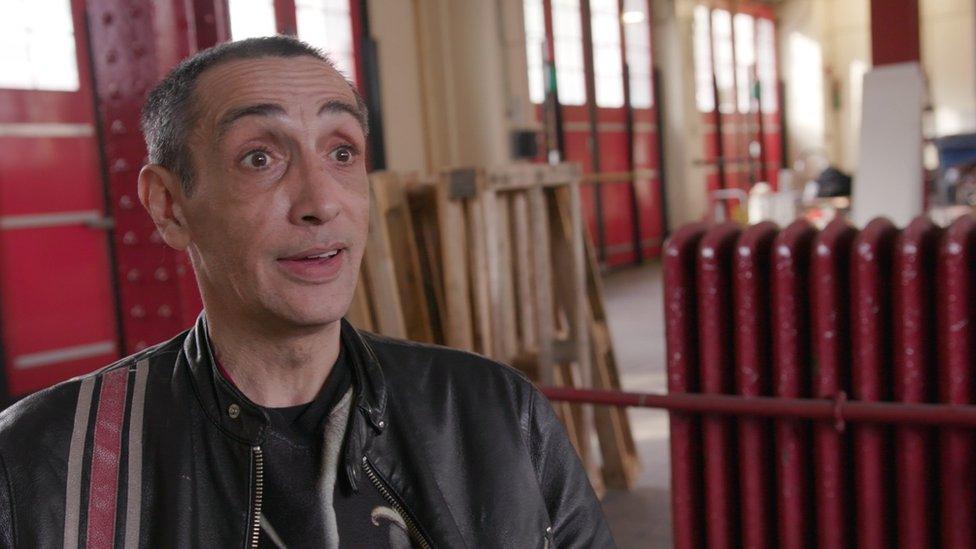
Chabahn now has a permanent home and a job
The UK's first permanent homeless shelter for LGBT people has opened in London. The BBC's Victoria Derbyshire programme met residents, who explained why having a dedicated facility was so important.
About one in four homeless people is thought to be LGBT.
But Chabahn, who became homeless last year aged 51, said it was very, very, dangerous to be open about being LGBT on the streets.
"In some places where I stayed you could hear it in some people's conversation - it's almost hatred and it's almost disgust, in their jokes and their conversation," he said.
In fact, he said, he had heard that in one hostel, four men had been raped because it had been discovered that they had been gay.
Chabahn said living on the streets with knowledge of those attitudes was not easy, in an an already-difficult situation.
"There are days you think to yourself, 'What's the point?' when every door you go to is slammed on you," he said.
"I've had drug dealers approaching me, trying to put [the drug] Spice in my stuff, waking up with people urinating on you, I've had a couple of people spit on me."
'Brings back confidence'
Chabahn was homeless for 18 months before he found the shelter, in February, during its pilot phase. He stayed there for several weeks before getting permanent housing.
He now has a full time job working in a cafe.
"It feels so good to be me again, something I had to hide for so long," he said, crediting his turnaround to his time at the shelter.
"It brings back your confidence, brings back your drive".
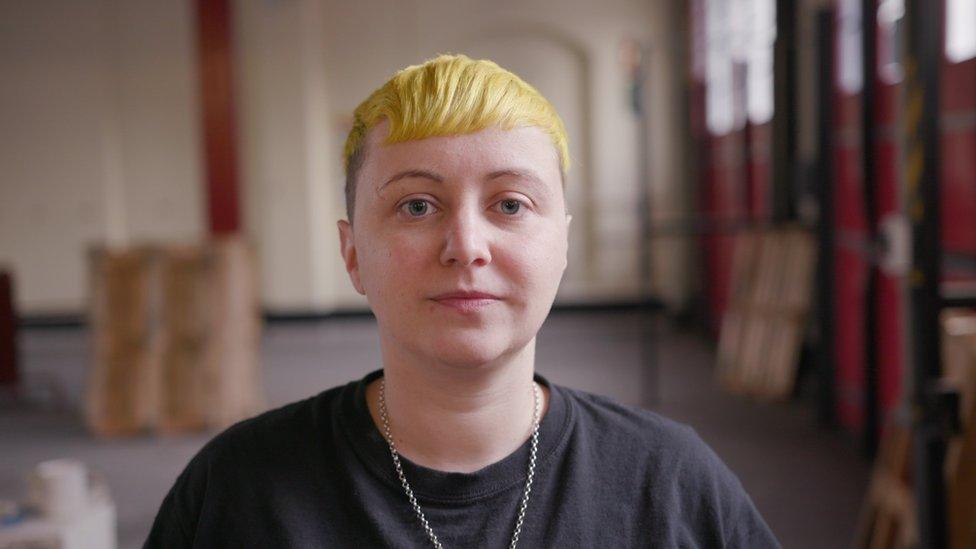
Carla Ecola says homeless LGBT people have very specific issues
The shelter has now been given funding for a year by the mayor of London and Stonewall Housing.
Based in the former Clerkenwell fire station, it will house 10 people across two shared and two private rooms, with a community centre on the ground floor for preventative work.
Carla Ecola, founder of LGBT organisation the Outside Project, which pioneered the shelter, said working in homeless services had made her realise that people could be very scared to be open about their sexuality.
"LGBT people have specific issues," she said. "We just experience life quite differently - the system is not always set up to support us."
Scared and vulnerable
Trans people, in particular, face extreme risks on the streets and sometimes have to de-transition in order to survive.
Kiki (not her real name), 23, has been homeless for almost three years. She was thrown out by her family when she revealed she was transitioning to a woman.
The first night she stayed on the streets, she presented as a woman, having had to leave her home without having time to pack any other clothes, and was subjected to both racial and trans abuse.
One homeless man attacked her and broke her tooth.
"I was scared, worried and felt vulnerable," she said.
Stonewall Housing Association, which provides specialist LGBT housing support, said about 60% of its service users said their sexuality or gender identity was directly related to their homelessness.
Its director of services, Michael Nastari, said: "Whether that is because they can't go back to their family, or they became homeless because they got into a same-sex relationship that was domestically abusive, there are a whole host of reasons.
"This can include bad experiences in mainstream services, not recognising their identity for trans people and lack of options.
"They might not have friends or social support that non-LGBT people have, which means their safety net isn't there."

Follow the BBC's Victoria Derbyshire programme on Facebook, external and Twitter, external - and see more of our stories here.
- Published20 December 2018
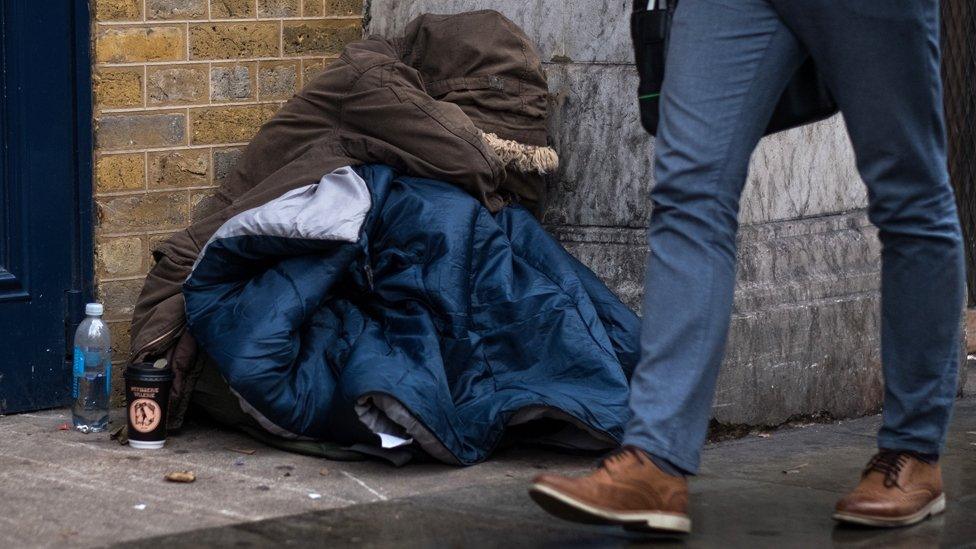
- Published24 April 2019
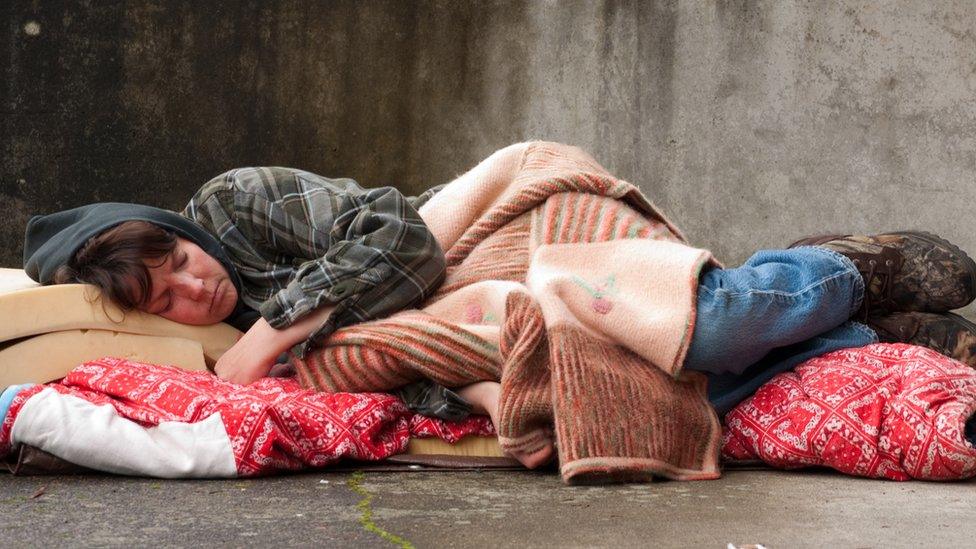
- Published10 December 2018
